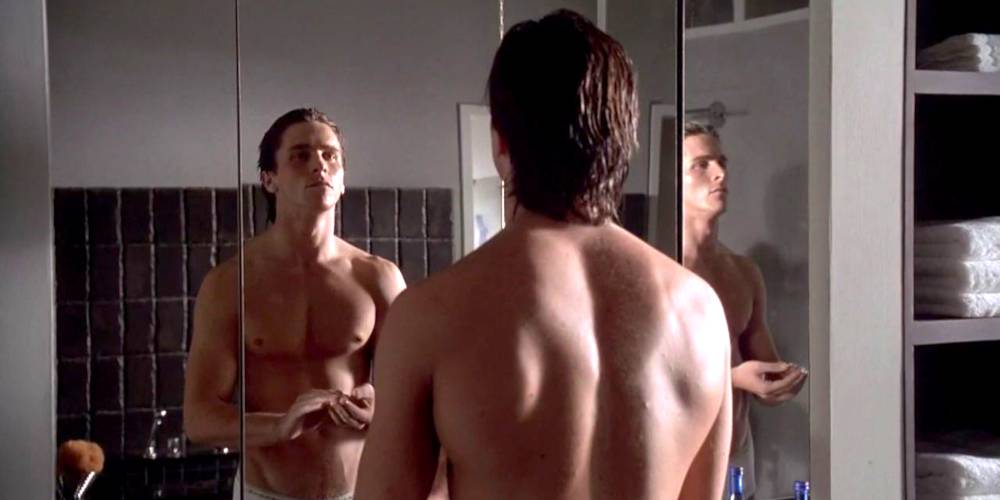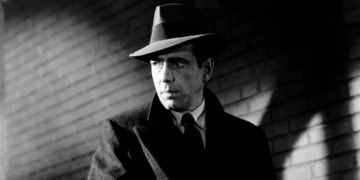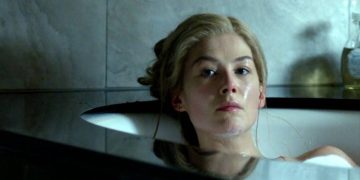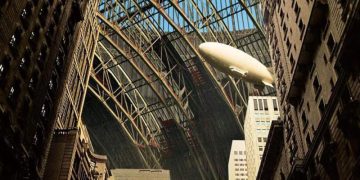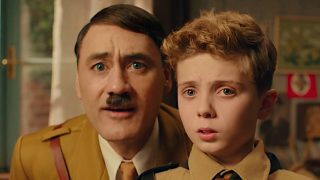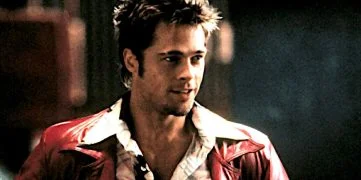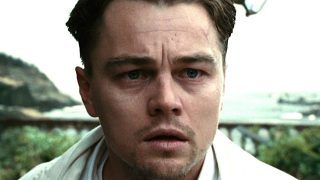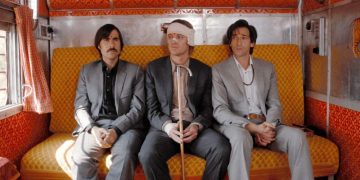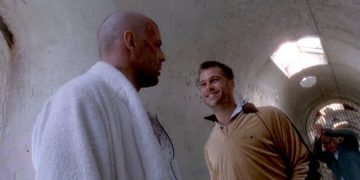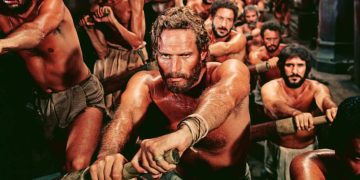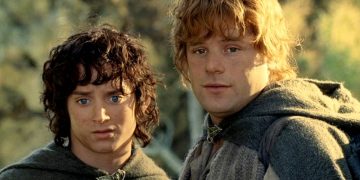Building off our ancient oral storytelling tradition—a tradition that precedes even the written word—the voice-over has long been a cinematic device to express what's going on within a character's mind.
But as with all cinematic devices, it's done poorly more often than not. Bland narration, misfit voices, and uninspired lines can be off-putting at best, but when it's really bad, it can make you want to stop watching.
Of course, there's also the flip side: some movies have done voiceover narration to great effect, with several voice-over examples that are so good that they've gone on to become iconic, legendary, and unforgettable.
Here are my picks for the best voice-overs in movie history and why they work when so many else have failed.
10. "I Killed Him" in Double Indemnity (1944)
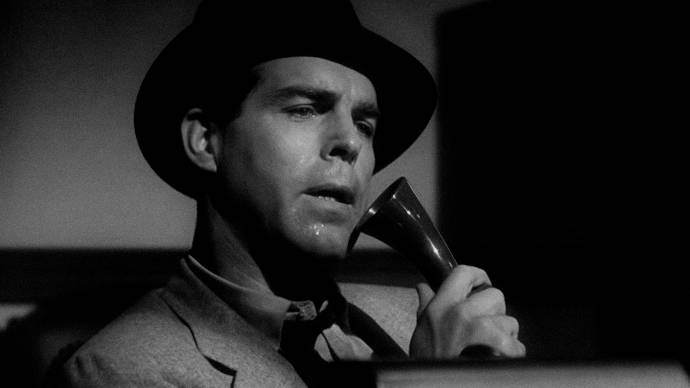
Double Indemnity is the definition of film noir. Written and directed by the legendary Billy Wilder, it's about a man and a woman who conspire to get rich—and happen to fall in love during the process.
Of course, things are never quite that simple...
The voice-over in Double Indemnity doubles as a confession. The man's guilt-ridden revelations show us the ways in which he succumbed to greed, lust, and everything sinful. It continues throughout the entire film and it gives the movie an eerie, seedy vibe.
9. Morning Routine in American Psycho (2000)
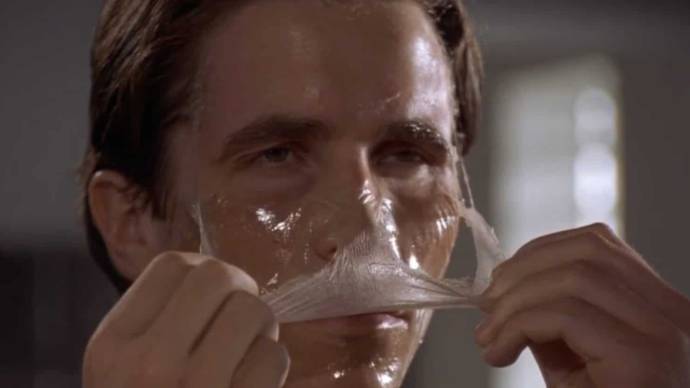
This voice-over by Patrick Bateman in American Psycho is absolutely the most self-centered voice-over on this list.
Bret Easton Ellis's satire of modern America's consumer culture and obsession with appearances is made plain in the opening narration of the movie as the megalomaniac Patrick Bateman (played by Christian Bale) talks about his exercise routine with a cold, unemotional pride.
Director Mary Harron depicts the routine in all of its vanity, and Christian Bale's icy voice-over matches his stony glare perfectly.
8. "Choose" in Trainspotting (1996)
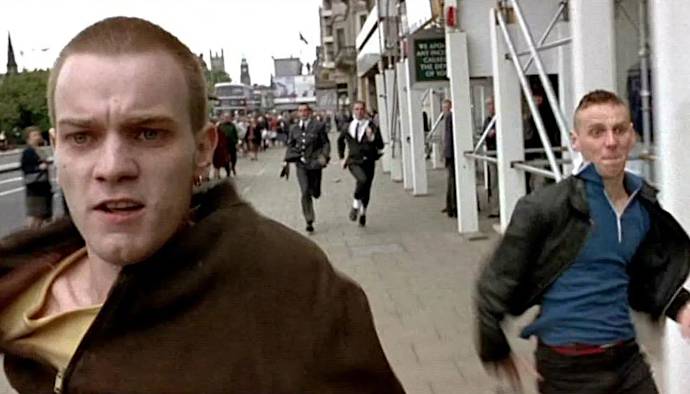
This firmly anti-establishment opening draws us into one of the best—and most important—movies of the 1990s. In Trainspotting, director Danny Boyle addresses us with hostile immediacy.
"Choose life. Choose a job. Choose a career. Choose a family, choose a big television. Choose washing machines, cars, compact disc players, and electrical tin openers. Choose good health, low cholesterol, and dental insurance. Choose fixed-interest mortgage repayments."
It's enough to make you feel personally attacked. But, then again, that's exactly what Boyle wants! These are the counterculture hedonists that time has moved past and left behind.
But they don't care because they're having a blast. What's more, it's clear from Renton's voice-over that he thinks you're just as crazy as he is.
7. Writer's Block in Adaptation (2002)
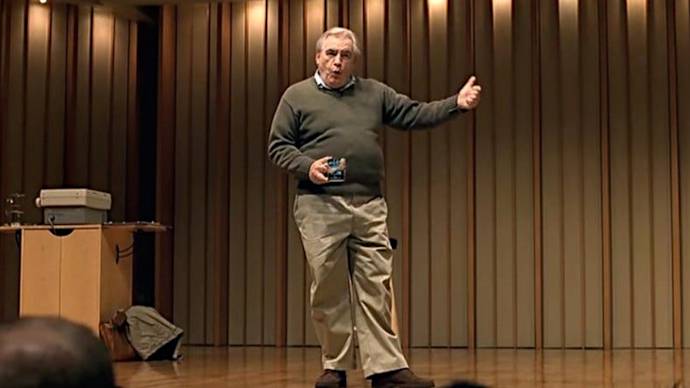
Charlie Kaufman is one of the best writers in Hollywood today. In Adaptation, he tells the story about his own efforts—and all the ups and downs—as he tries to write a screenplay.
However, he ends up struggling with a bad case of writer's block and engages in increasingly more toxic self-deprecation, which is all communicated to the audience through voice-overs.
In this particular scene, we see the meta-quality of his work come to life since Robert McKee lambasts any use of voice-over at all. The perennially nervous Kaufman looks as though he has been spotted.
6. The Narrator's Weekdays in Fight Club (1999)
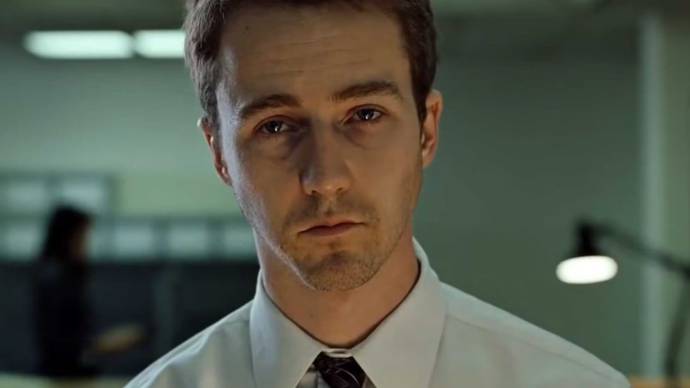
Edward Norton as The Narrator is one of the best narrators of all time. I mean, it's his character's name, for crying out loud!
Here we have another film that mocks consumerism and echoes anti-establishment themes, as Fight Club communicates those ideas very cleverly (and subtly) through voice-over narration.
At times, it feels like we're just an ear piece for anarchist propaganda, but the balance is struck well as to not be offputting. The whole thing adds a gritty, punk tone to David Fincher's masterpiece.
5. "The Animals Come Out at Night" in Taxi Driver (1976)
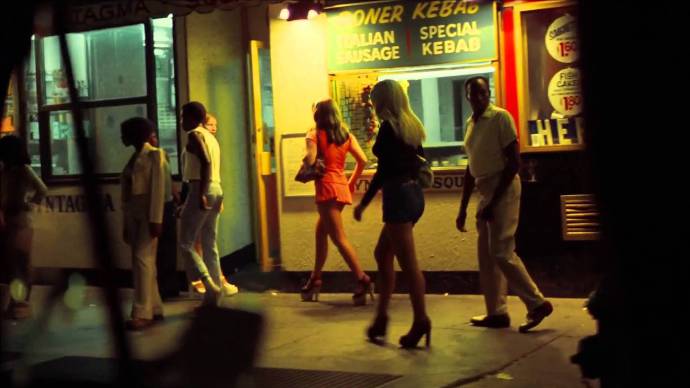
Martin Scorsese's Taxi Driver features one of the best voice-overs ever made. Against such a small budget, Scorsese turned a man's thoughts into one of the most quietly frightening films of his time.
In Taxi Driver, we hear Travis Bickle's stream of consciousness as he pours his perspective and world view into a diary.
His rhetoric is caustic, acerbic, and above all disturbing. He thanks God for the rain that will cleanse the streets, but we get the feeling that it's only a matter of time before he takes matters into his own hands.
It's a challenging portrait of a man without purpose, and his contempt is thick in Robert De Niro's skillful narration.
4. The Opening Scene in Badlands (1973)
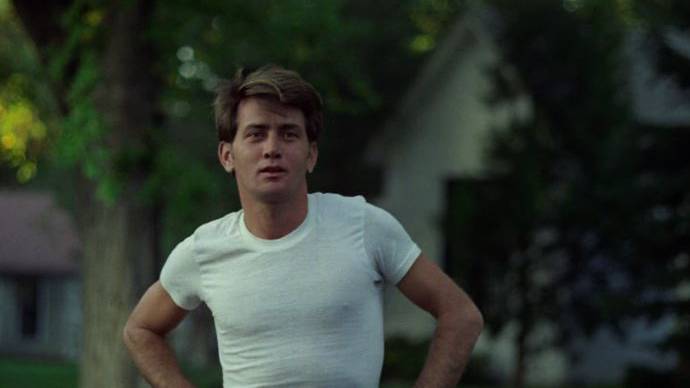
Voiceover enthusiast Terrence Malick appears for the first time—but not the last time—on our list with his feature film debut, Badlands.
The story follows a young couple who go around the state killing people. Sissy Spacek delivers the haunting narration as she gets involved with a deranged psychopath who says he loves her.
We get to see the world and the man she has attached herself to through her eyes as she tries to make sense of it all. Though it seems incomprehensible, as she relays her emotions to us, it does all seem to make sense in the mad, mad world she lives in.
3. Alex DeLarge's Hijinks in A Clockwork Orange (1971)
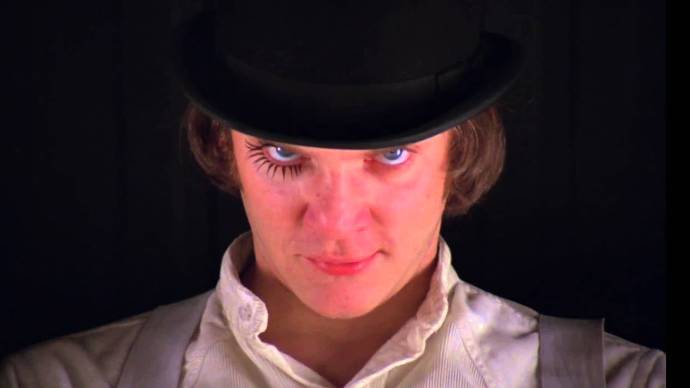
Stanley Kubrick's A Clockwork Orange is one of the most controversial films ever made, all while featuring one of the best voice-overs ever done.
The film follows Alex DeLarge (played by Malcolm McDowell), a teenager with a dangerously twisted mind.
He tells us about all of his antics and hijinks that he likes to get up to, such as stopping off at the milk bar, engaging in ultraviolence, and assaulting young women.
The stark—even proud—confession is unnerving and provides an insight both into his psychology and the society that he's living in.
2. "Who Lit This Flame in Us?" in The Thin Red Line (1998)
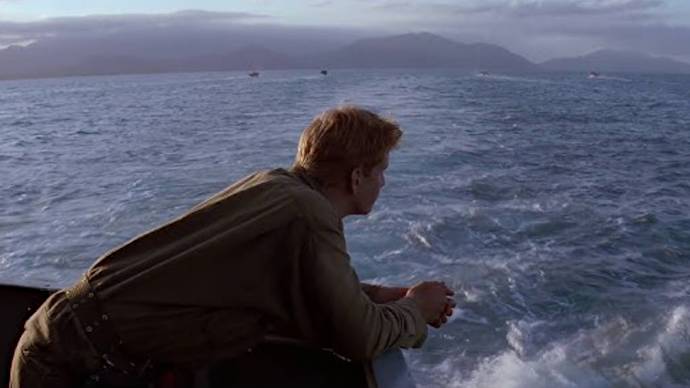
It's quite apparent that Terrence Malick has a thing for voice-overs—and it's also apparent that he's bloody good at them.
With its inquisitive, philosophical narration, The Thin Red Line is up there among the more spiritual films of the 1990s. In fact, it might be one of the most mystical war films ever made, a category unto itself.
This sense of cosmic mysteriousness is all created with a deeply moving voice-over. A character fighting on the Pacific Islands during World War II asks himself what it's all about: love, war, and life itself.
The Thin Red Line a lyrical film and a must-watch for any film fan.
1. "I Always Wanted to Be a Gangster" in Goodfellas (1990)
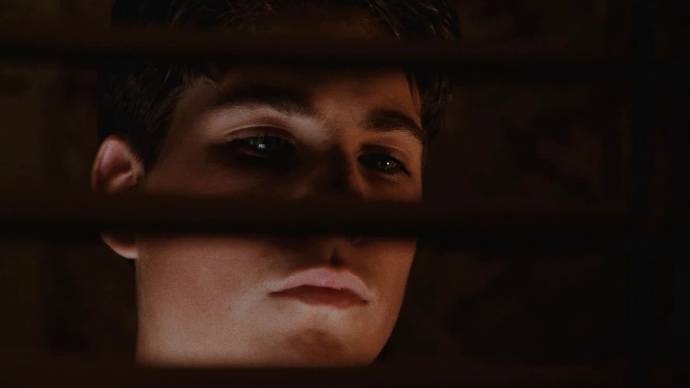
"As far back as I can remember, I always wanted to be a gangster." The first time I ever watched Goodfellas, I was absolutely hooked by the incredible voiceover narration.
From the start, Henry Hill (played by Ray Liotta) paints a vivid picture of 1950s New York City. After that, we're shown the life of crime he leads, and we're treated to so much rich, life-like texture that we feel as though we're living it right then and there with him!
He approaches us in the same way a storyteller would a small audience around a campfire. He has no shame; in fact, the pride in his voice is what draws us further in. We're pulled into his world with little more than his insistence—it's all fun, after all. And it works.
For nearly two and a half hours, we listen to him detail every important aspect of his life, providing a tactility that's so rare in films. For that reason, it's by far the best voic-eover that's ever been put to film.
